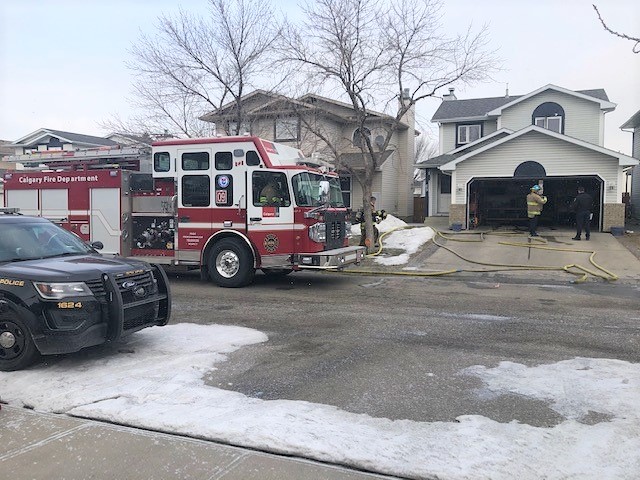Calgary’s city council is going to have to make some “difficult” decisions around citizen-facing services in order to find more savings, according to consultants from Ernst Young.

“With successive waves of reductions, it is getting harder and harder to identify the easier savings to execute and implement,” EY’s Lance Mortlock told the city’s audit committee on Thursday.
“Council should be prepared to make decisions that are, I would say, increasingly difficult with the implications on citizen-facing services.”
In 2019, city council approved the Solutions for Achieving Value and Excellence (SAVE) program, finding ways to save money on how the city provides its services. Suggestions were solicited from all city employees and managers.
The goal for the first wave — the 2021 budget year — was to find $24 million in savings. That goal was surpassed with savings of $26 million identified through 22 business cases.
“A lot of the business cases, although they haven’t been easy, really haven’t had an impact on the citizen experience or a citizen impact,” Mortlock said.
The SAVE program’s goal is to find $80 million in cumulative savings by the end of the 2022 fiscal year.
The city’s chief financial officer said the cuts have been prioritized to reduce impact to those citizen-facing services.
“We always have aimed to make sure that it isn’t just simply cost savings on any of (the initiatives), that they would further the cultural advancements that we would want, that they ensure that we prioritize citizen-based services, those sorts of things,” Carla Male told the committee.
She said the savings efforts have pushed city managers “outside of our usual comfort zone.”

“Previous reduction exercises really did focus on, ‘Here’s your envelope or here’s your target and please come up with what you set for that target,’” Male explained. “For service owners in a very short time period to really dig deep and look deeply at some of the delivery models, we are asking people to really take a second look at how they do things.”
Male said there has been a cultural shift from budgets for individual departments to a sense of collective responsibility.

Get breaking National news
Keeping council accountable
Decisions for the 2022 budget would normally be made in November, following the municipal election.
Ward 8 Coun. Evan Woolley, who is not seeking re-election, wants to be sure his current colleagues lock in SAVE program savings before Calgarians vote in the fall, since they were the ones who enacted the program.

“I’m concerned that we are passing the problem on to that new council and that these are important things,” Woolley told Global News. “These reductions to budget are important things to be discussing during an election.”
Woolley said he’s considering bringing a motion to Monday’s council meeting to put a pre-election timeline on the decisions for the next wave of SAVE initiatives.
“We have picked the low hanging fruit and we have been given an expectation that those $50 million in reductions will be difficult to find, without a consequence to the level of service that Calgarians are currently receiving.”
The city’s CFO said officials are preparing for increased demands and citizen expectations of city services as the coronavirus pandemic abates, calling it “one of the biggest issues facing us here at the city.”
“We’ve really been thinking internally on how the SAVE program fits and to make sure that we are not choosing things that may inhibit or prevent us from what we want to achieve in that,” she said.
“We would make sure that the services are as efficient as we can be so that in the event investments need to be made into the future, we could be confident that the services that we have today would be where they affordably could be today.”
Woolley said services to more vulnerable populations make up a small fraction of the city’s budget.
“Over 70 per cent of our budget is on three items: transportation, police and fire. It is not cuts to city hall internally. It is not public art programs.”
Other services the city provides for people in the city include parks, recreation, bylaw enforcement, housing, roads and snow clearing.
“If Calgarians want the level of police service that they have now, there is going to be a gap,” the Ward 8 councillor said.

Part of that gap comes from an “honest truth” Calgarians have to face, Woolley said.
“The downtown offices paid a disproportionate amount of revenue that created a lot of the services that citizens get,” he said. “The residential rate of taxation on citizens did not pay for that level of service.
“Now that that value in our downtown (has) gone down, that level of service and what we’re willing to pay for that service needs to be a big part of the democratic process that we are about to go through as a city.”












Comments
Want to discuss? Please read our Commenting Policy first.